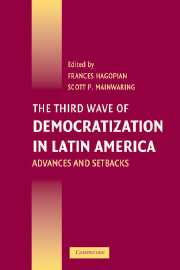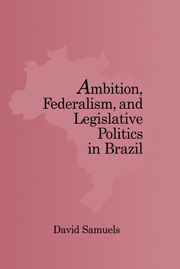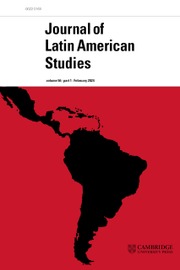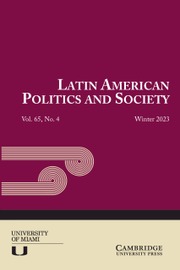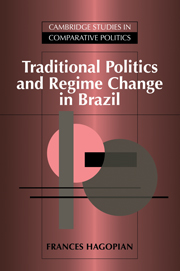The Third Wave of Democratization in Latin America
This volume offers an ambitious and comprehensive overview of the unprecedented advances as well as the setbacks in the post-1978 wave of democratization. It explains the sea change from a region dominated by authoritarian regimes to one in which openly authoritarian regimes are the rare exception, and analyzes why some countries have achieved striking gains in democratization while others have experienced erosions. The book presents general theoretical arguments about what causes and sustains democracy in its analysis of nine theoretically compelling country cases.
- The most comprehensive analysis of the post-1978 democratization wave in Latin America
- Represents the best scholarship on the issues, but is also accessible to the general public, graduate students and advanced undergraduate students
- Presents new theoretical arguments about the causes of democratization
Reviews & endorsements
"Democracy stands, yet nearly everything else is in flux, perhaps even at stake. Against this critical backdrop arrives the powerful anthology at hand. The shared virtues of its chapters are analytical lucidity and robust empirical knowledge. indeed, all the chapters contribute to the volume's general objective--to assess the quality of the region's democratic regimes--yet commendably, none is a ledger disguised as analysis. Rather, each chapter seriously deals with old patterns and new deviations in order to make better sense of democratization processes and outcomes." - Perspectives on Politics, Consuelo Cruz, Tufts University
"[An] impressive collection of essays...This book, featuring chapters by prominent political scientists from both the U.S. and Latin America, makes a major contribution by highlighting the significance of the international context and of the attitudes of elites and mass publics for determining the increased prevalence of democracy in the Third Wave."
Canadian Journal of Latin American and Caribbean Studies, Eric Hershberg, American University
Product details
June 2005Paperback
9780521613200
432 pages
235 × 157 × 24 mm
0.6kg
22 b/w illus. 36 tables
Available
Table of Contents
- Introduction: the third wave of democratization in Latin America Scott Mainwaring and Frances Hagopian
- 1. Latin American democratization since 1978: democratic transitions, breakdowns, and erosions Scott Mainwaring and Aníbal Pérez-Liñán
- Part I. Three Democratic Giants with Authoritarian Pasts: Argentina, Brazil, and Mexico:
- 2. Argentina: democratic survival amidst economic failure Steven Levitsky
- 3. The growing sustainability of Brazil's low-quality democracy Kurt Weyland
- 4. The demise of Mexico's one-party dominant regime: elite choices and the masses in the establishment of democracy Beatriz Magaloni
- Part II. Unexpected Democracies in Unlikely Countries: Bolivia, El Salvador, and Guatemala:
- 5. Bolivia's democracy at the crossroads René Antonio Mayorga
- 6. Challenges to political democracy in El Salvador Elisabeth Jean Wood
- 7. Democracy on ice: the multiple challenges of Guatemala's peace process Mitchell A. Seligson
- Part III. Democratic Erosion in The Third Wave: Colombia, Peru, and Venezuela:
- 8. From 'restricted' to 'besieged': the changing nature of the limits to democracy in Colombia Ana María Bejarano and Eduardo Pizarro
- 9. Peru 1980–2000: chronicle of a death foretold? determinism, political decisions, and open outcomes Martín Tanaka
- 10. Explaining democratic deterioration in Venezuela through nested inference Michael Coppedge
- Part IV. Conclusions:
- 11. Conclusions: Government performance, political representation, and public perceptions of contemporary democracy in Latin America Frances Hagopian.

